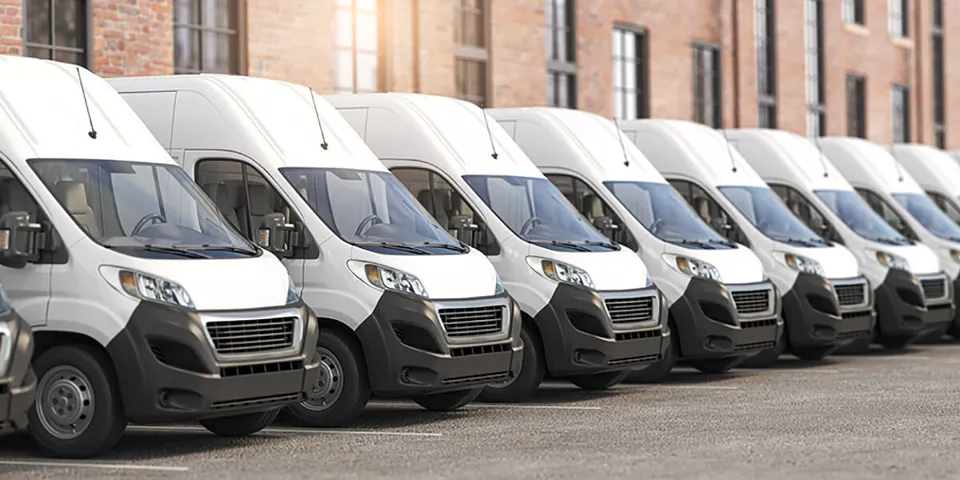A new £40 million competition to kick-start commercial self-driving services, such as delivery vehicles and passenger shuttles, has been launched today (Monday, May 23).
The ‘Commercialising Connected and Automated Mobility’ competition will provide grants to help roll out commercial use self-driving vehicles across the UK from 2025.
The competition will help bring together companies and investors so that sustainable business models to be rolled out nationally and exported globally, say ministers.
Minister for investment Lord Grimstone said: “Self-driving vehicles have the potential to revolutionise people’s lives, whether it’s by helping to better connect people who rely on public transport with jobs, local shops, and vital services, or by making it easier for those who have mobility issues to order and access services conveniently.
“This funding will help unlock the incredible potential of this new and growing industry, building on the continued development of self-driving technology, attracting investment and helping make our transport cleaner, safer and more efficient.”
Types of self-driving vehicles that could be deployed include delivery vans, passenger buses, shuttles and pods, as well as vehicles that move people and luggage at airports and containers at shipping ports.
Transport minister Trudy Harrison said: “We know that self-driving vehicles have the potential to revolutionise the way we travel, making our future journeys cleaner, easier and more reliable. But our absolute priority is harnessing the technology to improve road safety.
“With around 88% of road collisions currently caused by human error, this funding will drive the introduction of new technology to improve travel for all, while boosting economic growth and highly skilled jobs across the nation.”
The competition aims to cement the UK’s reputation as a global leader in self-driving vehicle technology, unlocking a new industry that could be worth £42 billion to the UK economy by 2035, potentially creating 38,000 new skilled jobs.
Ministers say that £1.5m of the funding will be used to study and explore using self-driving vehicles as a means of public transport that could provide an alternative to mass transit systems.
This includes, for example, using self-driving vehicles on routes separated from other traffic that could be cheaper and more flexible than new railway lines.
The Government says it is continuing to develop a comprehensive legal and assurance framework for self-driving vehicles to ensure the safety of the technology.
The Transport Bill, announced in the recent Queen’s Speech, will introduce legislation for self-driving vehicles to enable safe and responsible deployment.
The first vehicles to be listed as self-driving in the UK – vehicles approved under the Automated Lane Keeping System (ALKS) Regulation – could be available for people to purchase, lease or rent later this year.
Vehicles will undergo rigorous testing and will only be permitted to drive themselves when they have met stringent standards, says the Government.
Society of Motor Manufacturers and Traders (SMMT) chief executive, Mike Hawes, said: “Self-driving vehicles offer major benefits to society – improving road safety, supporting new jobs and economic growth, and enabling greater mobility for everyone – so the UK is rightly seeking to be at the forefront of this technological evolution.
“Recent regulatory reforms have helped Britain establish itself as a leader in the rollout out of self-driving passenger vehicles, and today’s announcement is a significant step towards self-driving public transport and goods delivery services becoming a reality.
“This new funding competition will help drive innovation and, potentially, private investment in UK automotive, ensuring cutting-edge self-driving technology finds a clearer path to UK roads.”
Interested parties can find out more about the competition, which is run by the Centre for Connected and Autonomous Vehicles (CCAV). It is a joint Department for Business, Energy and Industrial Strategy (BEIS) and Department for Transport (DfT) unit.
Michelle Gardner, acting deputy director of public policy at Logistics UK, said that the funding announcement was a welcome step forward.
She continued: "Logistics UK is also pleased by the £1.5m funding for feasibility studies; safety and sustainability must remain a core focus alongside consideration to vital economic and business benefits.”
Currently, there are no vehicles approved for self-driving on Britain’s roads meaning drivers must always remain in control of the vehicle.
In 2020, 88% of road accidents were caused by human error. SMMT estimates self-driving vehicles to save 3,900 lives and prevent 47,000 serious accidents by 2030.























Login to comment
Comments
No comments have been made yet.